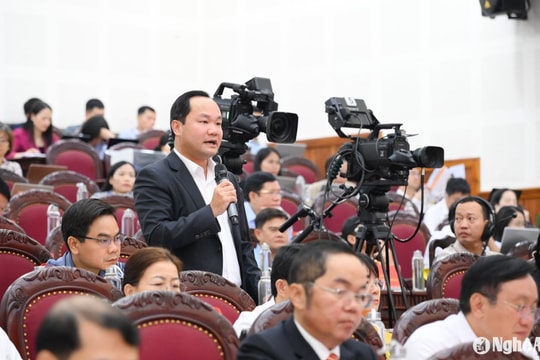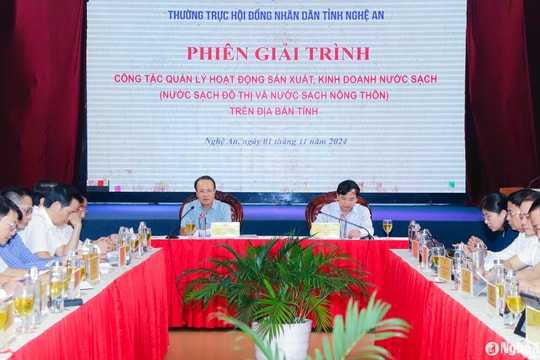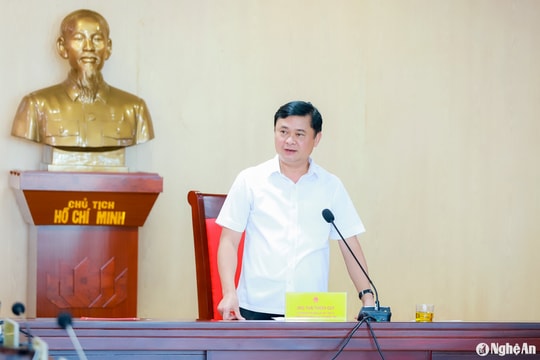'The explanation for having a 'mansion' from raising pigs and growing vegetables is unreasonable'
According to Mr. Dinh Van Minh, it is unreasonable for officials to explain the origin of their large assets by staying at home to raise pigs, grow vegetables, etc.
Along with the noise about officials' mansions, public opinion is more concerned about the Central Inspection Commission's conclusion about dishonest and incomplete declarations of assets and income related to a number of high-ranking officials at both the central and local levels.
Dr. Dinh Van Minh - Director of the Institute of Inspection Science, under the Government Inspectorate, discussed this content.
 |
| Mr. Dinh Van Minh answered an interview with VOV reporter. |
Measures on asset transparency are still too formalistic.
PVSir, transparency in assets of officials and civil servants is considered an effective solution to prevent corruption. But with what has been happening in reality, it seems to be the least effective tool?
Mr. Dinh Van Minh:The fight against corruption is a complex issue, requiring a lot of efforts and comprehensive and synchronous measures. Among them, the issue of controlling the income and assets of civil servants and public employees is one of the important measures and solutions.
These measures have been implemented quite seriously, but the effectiveness is not high. Even in the assessment and summary of 10 years of implementing anti-corruption, it is said that the measures on transparency of assets of civil servants are still too formal. That is something worth thinking about.
PV: The legal system is increasingly being improved, with more regulations on asset declaration of officials and civil servants. However, it seems that the more regulations there are, the more gaps there are, making implementation more formal. What is your comment on this assessment?
Mr. Dinh Van Minh:Asset declaration is not a new issue, we have started doing it since the 1998 decree and it has been increasingly supplemented to perfect it. However, it must be seen that in the provisions of the law there are many things to do but sometimes they are just formalities. Meanwhile, the issue related to ensuring honesty in asset declaration and controlling assets of civil servants and public employees is lacking and not done properly.
For example, we have many regulations on the order and procedures for declaration, but we lack regulations on who must declare honestly, who will evaluate and control that work; the explanation of the origin of assets and the public disclosure of asset declarations are also not done thoroughly... It can be said that these things are both complete but also lack the basics.
PV: Never before has the word “mansion” appeared in the newspapers as frequently as recently and attracted attention because it belonged to officials. Explaining the origin of the creation of the mansion, an official answered that it was the result of hard work, sweat, and tears, from raising livestock, gardening, or trading. What do you think about this explanation?
Mr. Dinh Van Minh: Honest declaration is an issue that is being tried to implement, but more important is explaining the origin of assets.
Current laws and even the Resolution of the 10th Central Committee on strengthening the Party's leadership in the fight against corruption and waste have raised the issue of explaining assets, especially additional assets. However, the need to prove the origin of assets has not been raised, but has only stopped at explaining them in a reasonable manner.
To be fair, there are people who have assets and they can explain it completely. For example, many leaders who studied abroad in the past bought things and sold them to get money to buy land because land was very cheap in the past. A few hundred square meters of land back then could be worth several hundred taels of gold now. However, it is not reasonable for him to explain by saying: I stay home to raise pigs, grow vegetables...
We have stopped at the point of reasonable explanation and have not yet mentioned proving the legality of the property. In my opinion, we can do this.
Must manage staff income
PV:In your opinion, what should be done to solve this difficult problem?
Mr. Dinh Van Minh:To do this, we need to go back to the foundation of management, we must manage the input, that is, income. Currently, the input or income of civil servants has many sources, salary is only one part, in addition there are other allowances and allowances. However, currently we cannot control the income of civil servants, public employees, including from the budget and other sources.
No one prohibits civil servants from buying houses and selling them, or even participating in shares and stocks, but all of these things need to be controlled and transparent, so that the origin and the flow of money that becomes the property of civil servants are clear. Then, explaining is no longer a difficult problem.
PV:We have regulations on the obligation to explain the assets of civil servants and gradually publicize assets. But the new regulations are only in writing, sir?
Mr. Dinh Van Minh:The issue of explaining and publicizing assets is the most complicated issue in controlling assets and income. Currently, there is a provision for explaining when there is an increase in assets, but this only stops at the point that if the explanation cannot be made, meaning that you are dishonest in declaring your assets, you will be subject to the highest disciplinary action, which is dismissal; assets that are temporarily called unclear cannot be immediately concluded to be assets related to corruption for recovery. This is related to the state's obligation to prove, related to whether or not there are regulations on the crime of illicit enrichment.
Article 20 of the United Nations Convention against Corruption stipulates that if assets cannot be accounted for, it means that you have illegally enriched yourself, and those assets will be confiscated and you will be criminally prosecuted. But in Vietnam, Article 20 of the United Nations Convention is still uncertain and reserved.
Regarding the current public disclosure of asset declarations, it is only publicly disclosed internally, within agencies, organizations, and units. Even in Conclusion No. 21 dated May 23, 2012 of the Central Executive Committee on continuing to implement Resolution 3 of the 10th Central Committee, it is clearly stated that regulations must be reviewed to move towards transparency of assets, even publicly at the workplace and place of residence. It has been 5 years since then, but this has not progressed any further, it is still publicly disclosed internally. Once publicly disclosed internally, people's inspection, supervision, and detection will be limited.
PV:When the transparency of assets of officials and civil servants still depends on self-awareness and when officials and civil servants, especially high-ranking officials, lack honesty in declaration, in your opinion, what changes need to be made in solutions and measures?
Mr. Dinh Van Minh:We have put asset declaration into practice, agencies have done well, however the problem is how to control transparency and honesty.
Therefore, there must be principles and regulations on the responsibilities of state agencies in controlling that. For example, currently, declarations are only submitted to the personnel organization, as a procedure, and there is no regulation that says that the leaders must read them to see if they are truthful or not. So there must be at least one agency or unit that not only receives them but also reads them to see if they are true or not. When receiving feedback, there must be initial verification with the agencies.
It is necessary to have relationships with management agencies to be able to identify from the beginning whether the assets show signs of transparency or not./.
According to VOV
| RELATED NEWS |
|---|

.jpg)
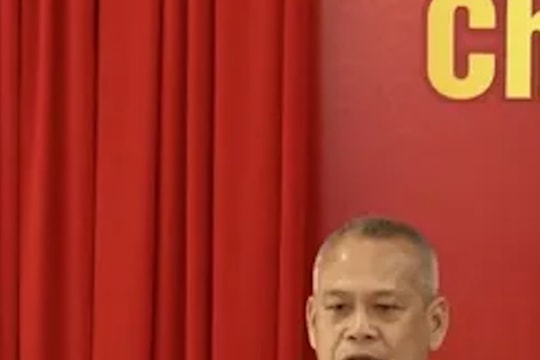
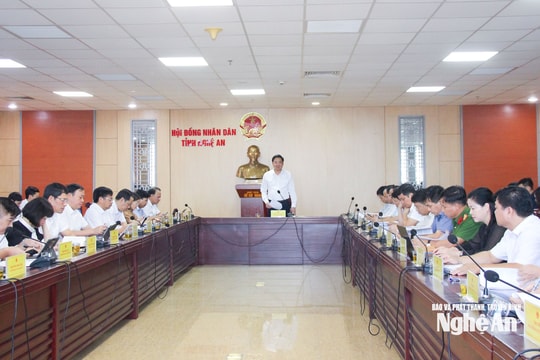
.jpg)
